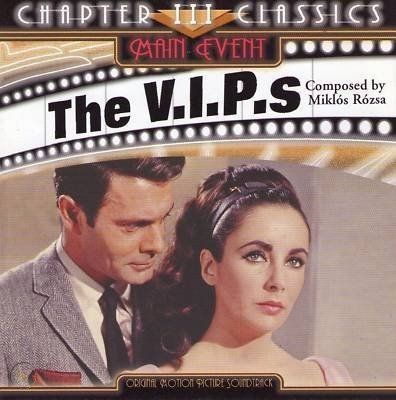Miklós Rózsa 1907-1995
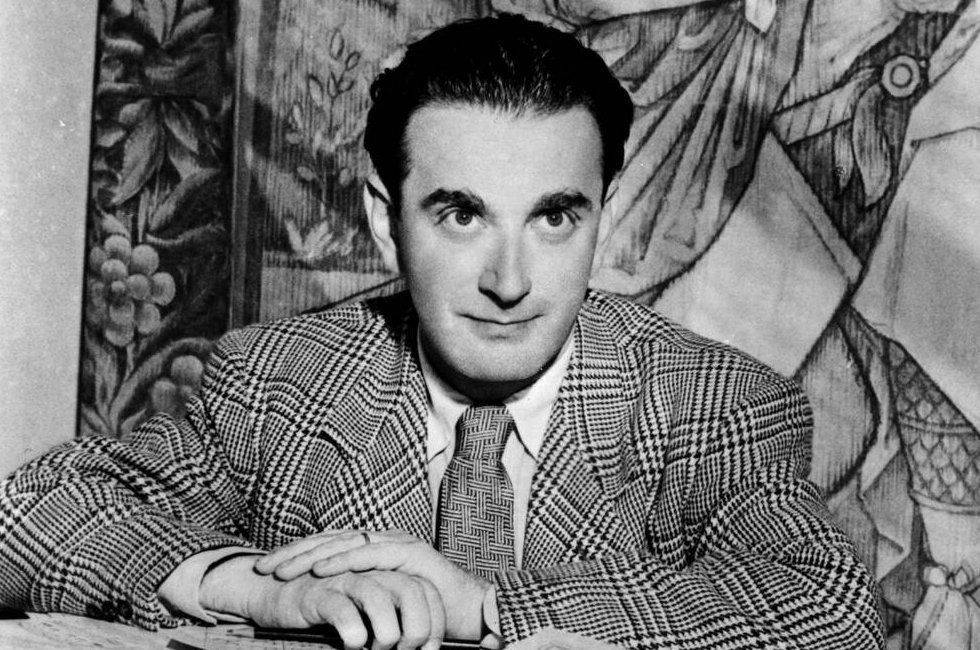
Although Miklós Rózsa is a very genial and charming gentleman, with a ready and sometimes mordant wit, he occasionally finds it advisable to cloak his social talents beneath the professional dignity that is his by virtue of a doctor's degree and a chair on the faculty of the University of Southern California. When he wears this prim and proper manner it is difficult to believe that he is the film composer who climbed to the top rank of his profession as an expert in music for oriental romances and psychological melodramas. Yet he actually won his first successes with the scores for Alexander Korda's THE THIEF OF BAGDAD and THE JUNGLE BOCK. On the whole his musical orientalism was of the synthetic sort promulgated by the Rimsky-Korsakoff circle. This was no detriment to popularity, although it was roundly condemned by the avant-garde critics of the “little magazines,” who apparently did not realize that genuine oriental music would have been completely out of place in films that were themselves unauthentic in
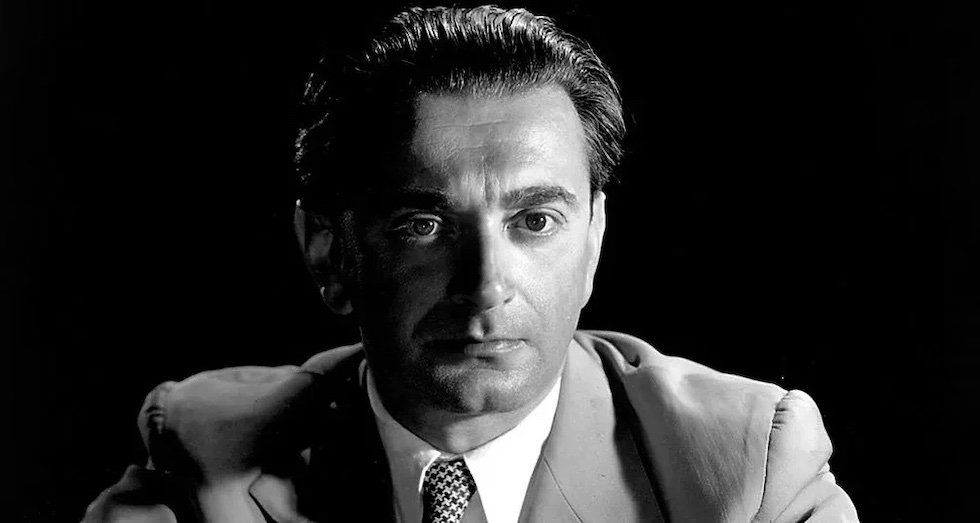
Would you believe, no, better, is it conceivable that one of the greatest screen composers' career was built not only on his genuine phenomenal talent, but when asked by the head of a studio what films he had scored, he invented two picture titles which not only he had not composed, but which two films had never been made. This he had to do, for the plain truth was that he had never written a film score, nor, according to his own admission, had not the foggiest idea how to write for films.
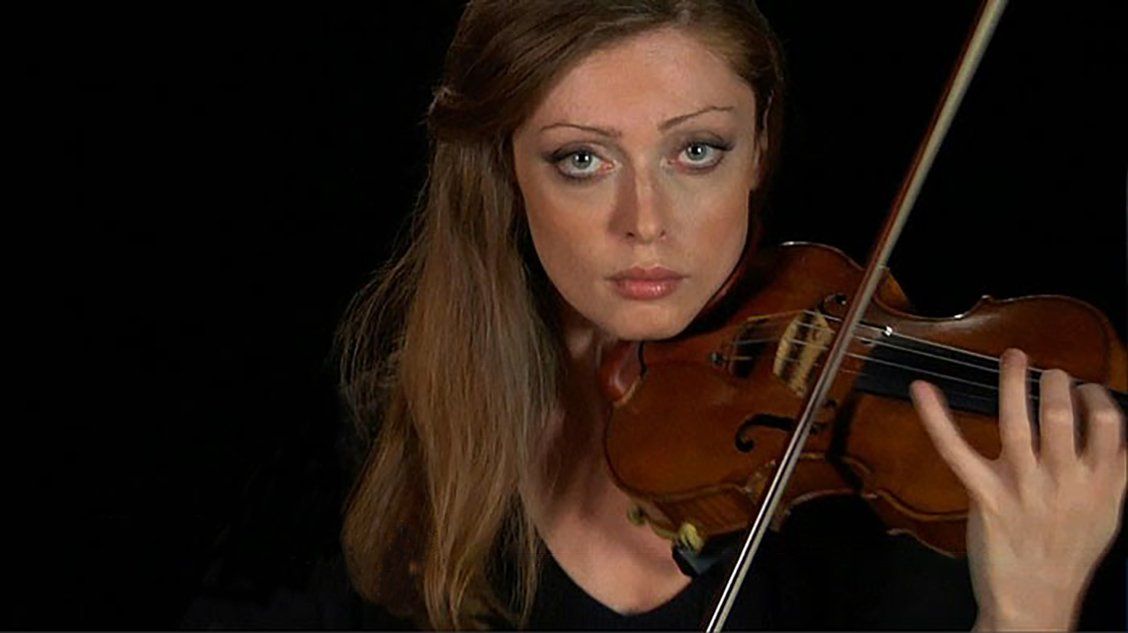
Miklós Rózsa wrote music which is an inescapable part of American cinematic culture. Whenever you think of "Biblical" or "Roman" sounding music, like as not, you think of Rózsa. I knew none of this when I first heard his violin concerto, which was written for, and recorded, by Jascha Heifetz. All I knew was that it was fantastic. Although Heifetz could imbue the most quotidian, pointless piece of fiddle-fluff with such power, conviction, and sheer bravado, the piece would tempt even the most conservative player. I sensed that this music was special and felt that, if offered the opportunity to perform it, I would do it full justice. The piece was hardly standard repertoire, and it was unlikely I’d ever have to play it. Occasionally, I would suggest it to a conductor, who would look at the score, and politely decline. Eventually I misplaced the Heifetz recording, and forgot about the Rózsa concerto entirely.

Hollywood has not exactly achieved world fame for the historical accuracy of its film biographies, as the carefree manner in which it often juggles historical facts with sheer fantasy to suit its own dramatic purposes is its Achilles heel, where it can be – and usually is – attacked. LUST FOR LIFE, however, is a notable exception. It is most gratifying to see Hollywood come up with a film biography, which not only captures the dramatic highlights of a great painter’s tragic life but also with painstaking research remains absolutely factual and correct on historical data and characterization of the dramatis personae. This was based on Irving Stone’s now world-famous novel of the same name, written for the screen by the brilliant Norman Corwin, produced by a man of impeccable taste, John Houseman, and directed by an artist of his own merit – Vincente Minelli. The result of the collaboration is a moving drama of the tormented life of Vincent Van Gogh.
Recommended further reading
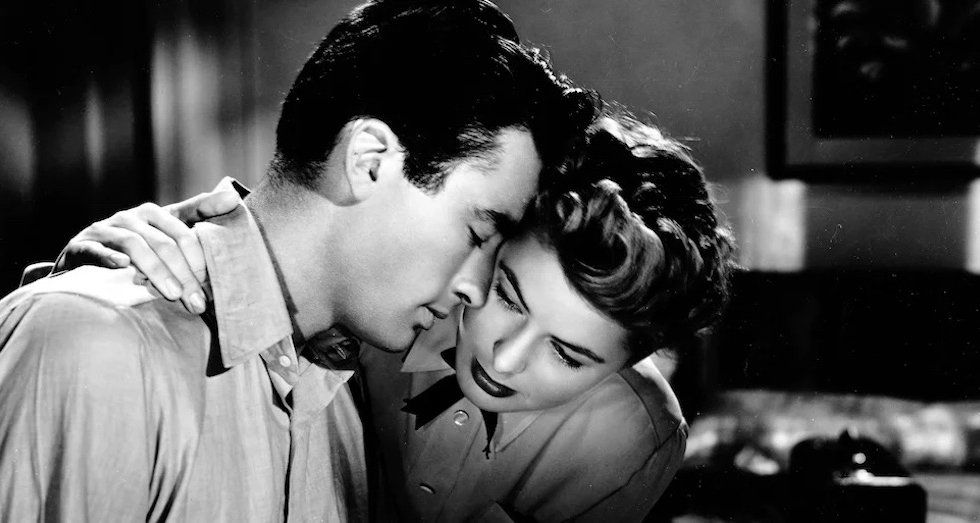
Production files detailing the construction of the musical score for the film Spellbound reveal an intense and complicated collaboration involving music editor Audray Granville, director Alfred Hitchcock, composer Miklós Rózsa, and producer David O. Selznick. Tracing the formation of the score from initial outlines through composition and editing shows how these four individuals contributed to the score’s development. Conflicting instructions from Hitchcock and Selznick as well as Granville’s preview score influenced Rózsa’s compositional decisions, and Granville’s revisions of Rózsa’s recorded music affected the content of the score. The music of Spellbound does not represent a single or even shared vision, but rather an intricate conglomeration of ideas, revisions, and interpolations. Illuminating these layers of discourse enriches musico-cinematic analysis by challenging conventional notions of authorship and artistic control in the Hollywood film score.
Interviews
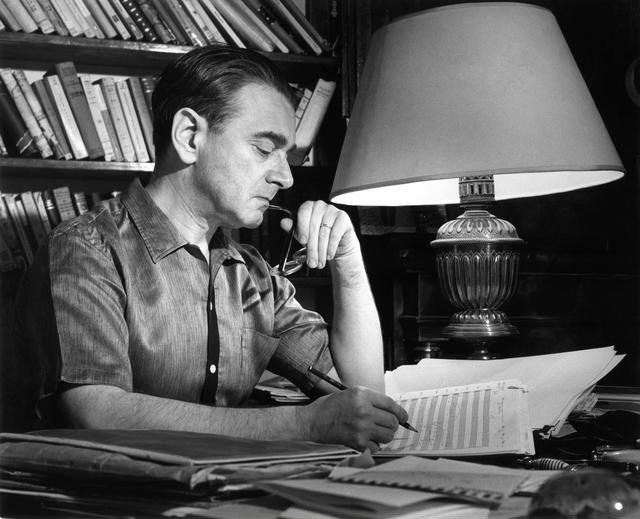
Well, as you know, for years I have refused to write music for the new Hollywood trinity: sex, violence, and horror. Resnais's PROVIDENCE had none of this. It is a highly original work, as is everything he does because he is a true artist and a truly creative film-maker. He has a style of his own, and as Buffon has said, "Le style est l'homme même." It was as much pleasure to work with him as it was with Minnelli, Wilder or Wyler; he knew what he wanted, and as he is very music- conscious and knew both my film and symphonic music, this made our collaboration easy and relaxed. His father-in-law, Andre Malraux, called his memoirs Anti-memoires, and I would call this score of mine Anti-BEN-HUR. There is nothing spectacular or flamboyant in it; on the contrary, all the music is introvert, pensive, gloomy, and often lugubrious. Even the waltz played at the imaginary reception is crépusculeuse - a waltz of twilight, almost a danse macabre.
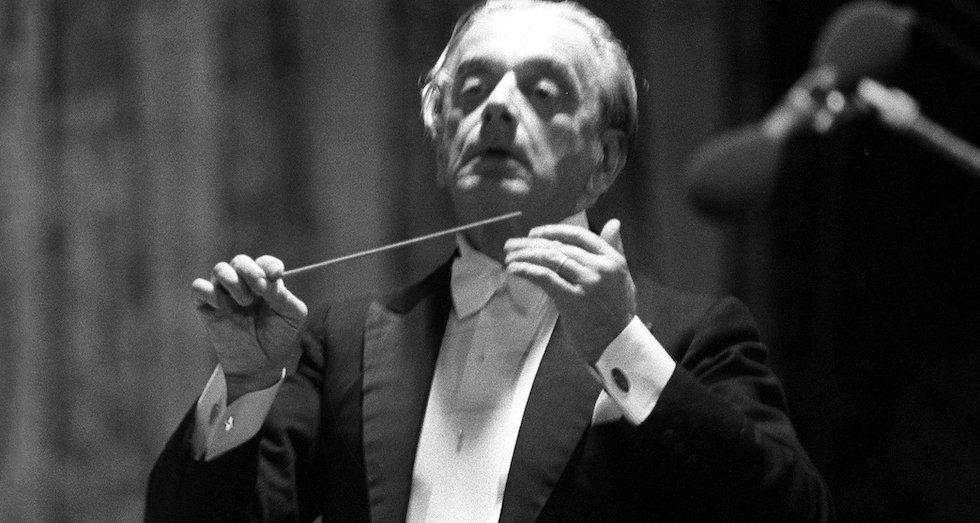
DEAD MEN DON’T WEAR PLAID is a comedy and you are not really known for scoring comedies. How did you first become involved with Carl Reiner and DEAD MEN?
Well, very simply, they asked for me. I don’t know what the reason was, but they said they had been wanting me all the time. But the truth is: there are film clips from old movies in it, movies that I originally scored, so they had seen my name several times.
Reviews
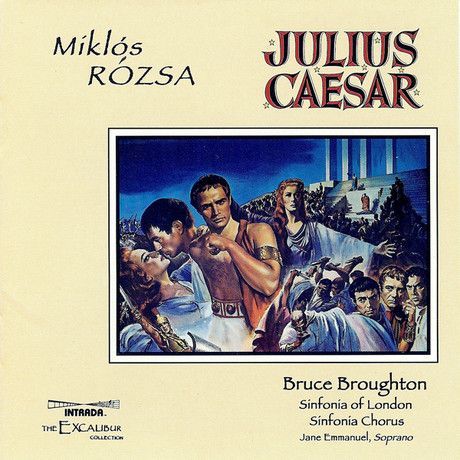
MGM’s prestigious 1953 production of JULIUS CAESAR remains a powerful film even today and is one of the finest examples of filmed Shakespeare. No expense was spared on creating a prestigious production which utilized an impressive cast of some of the most talented screen and stage actors of the day. The dramatic effect was boosted by the utilization of stark black and white photography. The producer and director originally wanted Bernard Herrmann to score the film but the studio preferred to use Rozsa who was under a studio contract. The attitude among the top brass seemed to be “why pay another composer when we have Rozsa on the payroll”. Herrmann was disappointed at not getting the assignment but nevertheless complimented Rozsa on the completed score and was so impressed by it that he later recorded selected highlights for Decca records. I was intrigued when I first heard that Intrada was going to record JULIUS CAESAR because there is so very little music contained in the film. However, this new recording r

Ivanhoe is the archetypal Miklos Rozsa historical score. A medieval pageant full of glorious, rousing themes. It is an ambitious subject for a re-recording, not least because it contains the lengthiest and most complex battle music which Rozsa ever scored – for the sequence displaying the storming of Torquilstone Castle. It is wonderful to have such a fine new recording of the score – the first full length re-recording of a Rozsa score for many years. The original soundtrack on MGM E179 contained only five excerpts from the score, whilst a not too successful recording of the Prelude / Finale was issued as part of Charles Gerhardt’s classic film scores series.
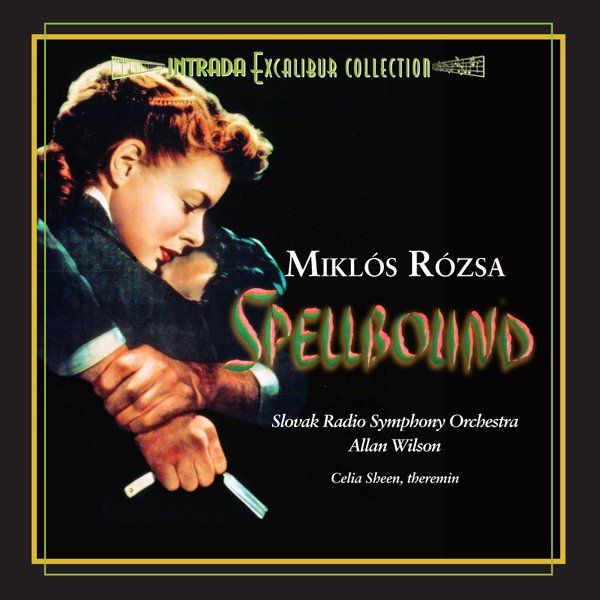
Miklos Rozsa’s love theme for Spellbound was the closest the composer came to having a popular “hit” tune which resonated with the public. He once described it as his most “durable” score in view of the numerous recordings which had been made, and indeed which continue to be made, of the main theme and the Spellbound Concerto. In 1958 Warner Bros issued a stereo LP of the score with Ray Heindorf conducting the Warner Bros Studio Orchestra. It was a reasonable good interpretation, although somewhat removed from the original soundtrack, partly due to changes in the orchestration.

In the printed booklet notes to this handsomely presented box set, producer Lukas Kendall reveals that when FSM first began a CD contractual arrangement with Warner Bros/Turner Entertainment Co., who own the classic M-G-M film library, it was Rózsa who was foremost in his mind. Hardly surprising, of course, because when Rózsa was under contract to M-G-M he was at the height of his creative powers, when his romanticism came to the fore, especially for historical dramas, and he scored one masterwork after another. Kendall goes on to say that having cherry-picked some of Rózsa’s greatest scores for single disc release, it was appropriate to assess how to make the remaining material available – the result of which is this opulent box set of 15 discs, containing over 14 hours of music, which sweeps up just about every Rózsa note remaining on the studio floor. There were, no doubt, practical business reasons to combine all the remaining material in a special collector’s item, because scores from less well-known fil
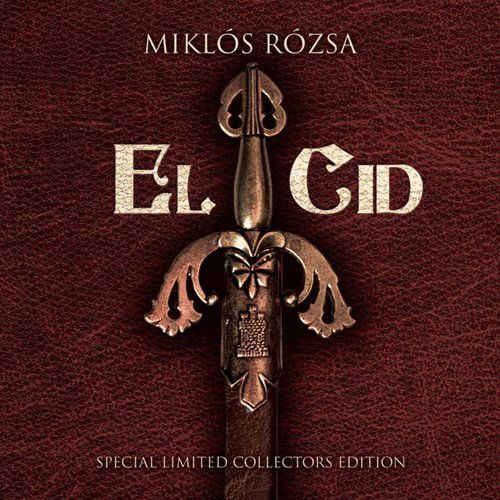
Swiftly following-on from the highly praised recording of Miklós Rózsa’s THE PRIVATE LIFE OF SHERLOCK HOLMES, Tadlow Music producer James Fitzpatrick has drawn on the same forces, namely the City of Prague Philharmonic Orchestra, conductor Nic Raine and recording engineer Jan Holzner, to record Rózsa’s monumental score for the film EL CID.It’s remarkable that Rózsa composed three lasting masterpieces, BEN-HUR (1959), KING OF KINGS (1961) and EL CID (1961) in such quick succession – an epic musical trilogy considered by many to be Rózsa’s crowning achievement. As the final part of this trilogy, and in the absence of some of the religiose solemnity of the first two scores, EL CID possesses a contrasting vitality and joyousness which in overall musical enjoyment equals or eclipses those preceding scores. Rózsa considered it his last major score and there is little doubt that he was correct – the film industry was changing and he never again had the opportunity to score music for a film of such quality again.
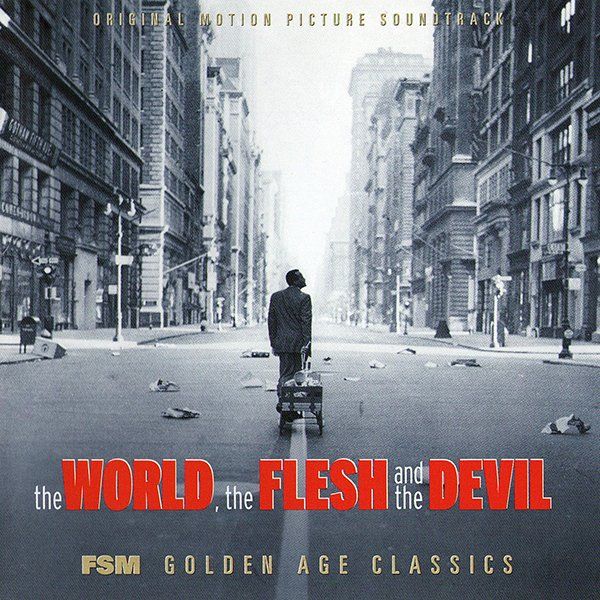
This album marks the first release in stereo of Miklós Rózsa's complete score to the 1959 science fiction film, The World, the Flesh and the Devil, one of the composer's infrequent ventures into the genre; the other two being The Power and Time After Time. The disc marks Film Score Monthly's second recent volume of Rózsa, following The Green Berets, with a third, The Seventh Sin (1957) set to follow almost immediately. The music is of particular interest for being the score the composer completed directly prior to working on MGM's remake of Ben-Hur, generally considered Rózsa's finest music for the cinema, and indeed, one of the greatest film scores ever composed. The World, the Flesh and the Devil spans 20 tracks, including two alternate versions, and 53 minutes.
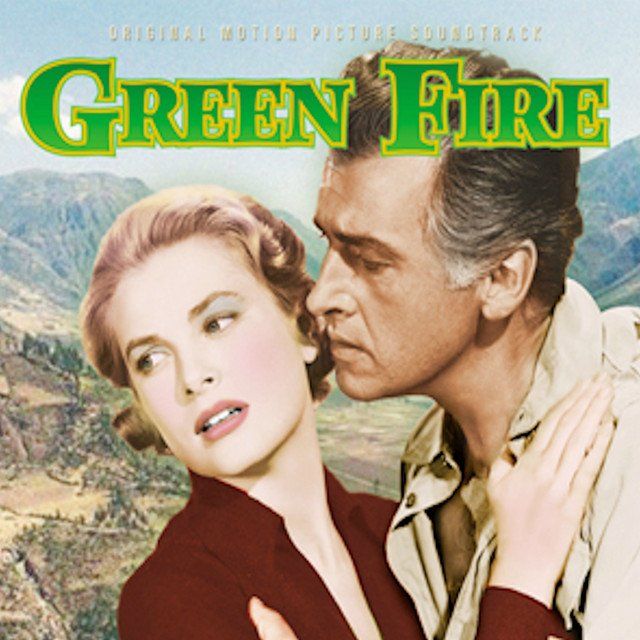
This Film Score Monthly is a very enterprising set, combining two scores by Miklós Rózsa for mid-1950's MGM exotic adventures both starring Stewart Granger and featuring two of the top leading ladies of the day, Grace Kelly and Ava Gardener. The heart of the album, or at least the main selling point, is the 36 minute long stereo soundtrack to Green Fire (1954). It's something of a surprise to find that most purist of film composers delivering, after a typically robust 22 second introduction, a pop-choral title song in standard 1950's style but with delicate percussive accompaniment. The words are trite, sentimental nonsense, but as the whole thing only lasts 70 seconds it can easily be overlooked due to the real riches which follow this ode to emeralds and true love. "The Lost Mine" flows directly out of the title song and has a delicate scene-setting fantasy which calls to mine the composer's fabulous invention for The Thief of Bagdad (1940). "The Leopard" finds Rózsa penning increasingly fraught suspens
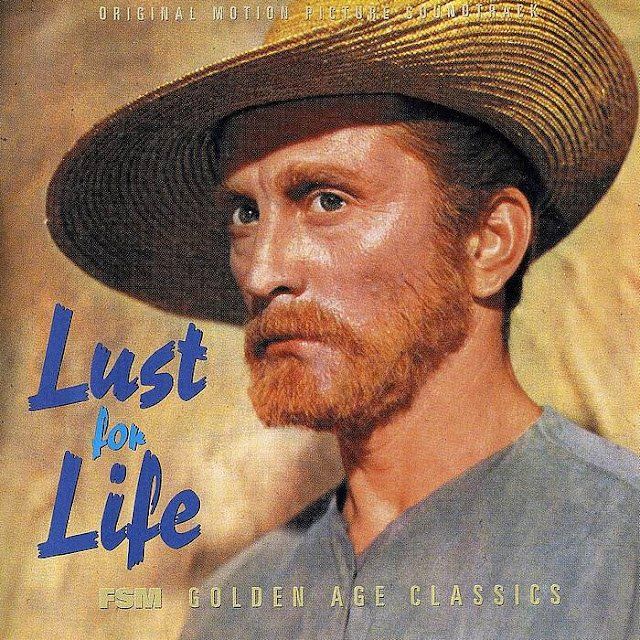
Cast against type, Kirk Douglas, nevertheless, turned in a fine sensitive, anguished Oscar-nominated performance as the tormented post-impressionist painter, Vincent van Gogh in the 1956 Vincent Minelli-directed biopic Lust for Life. The film also received Oscar nominations for the adapted screenplay of Norman Corwin and for its art direction. Anthony Quinn won the supporting actor Oscar for his 8-minute role as Gauguin. Although he was not included amongst the Oscar honours, Miklós Rózsa always considered his score to be amongst his finest creations for the screen.

